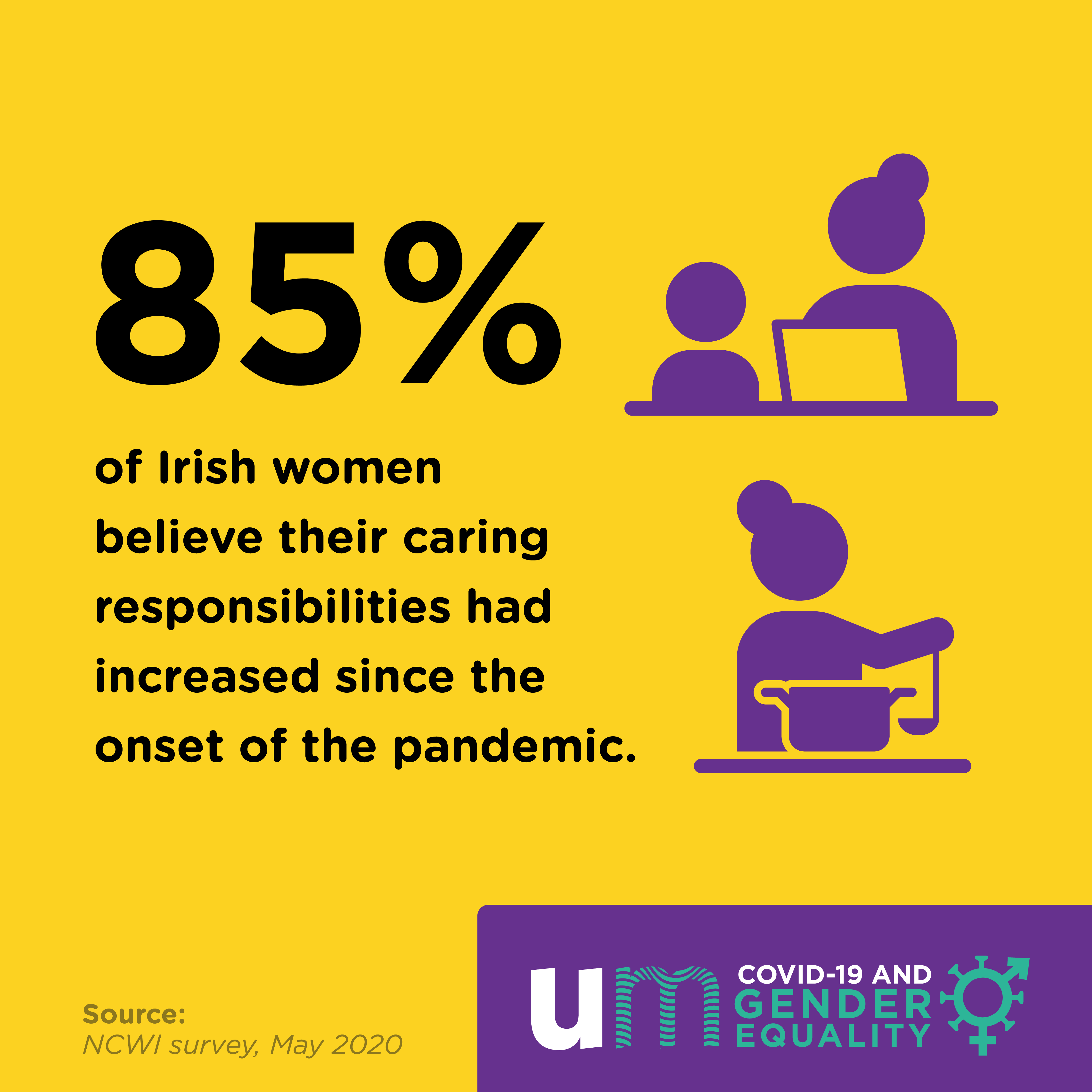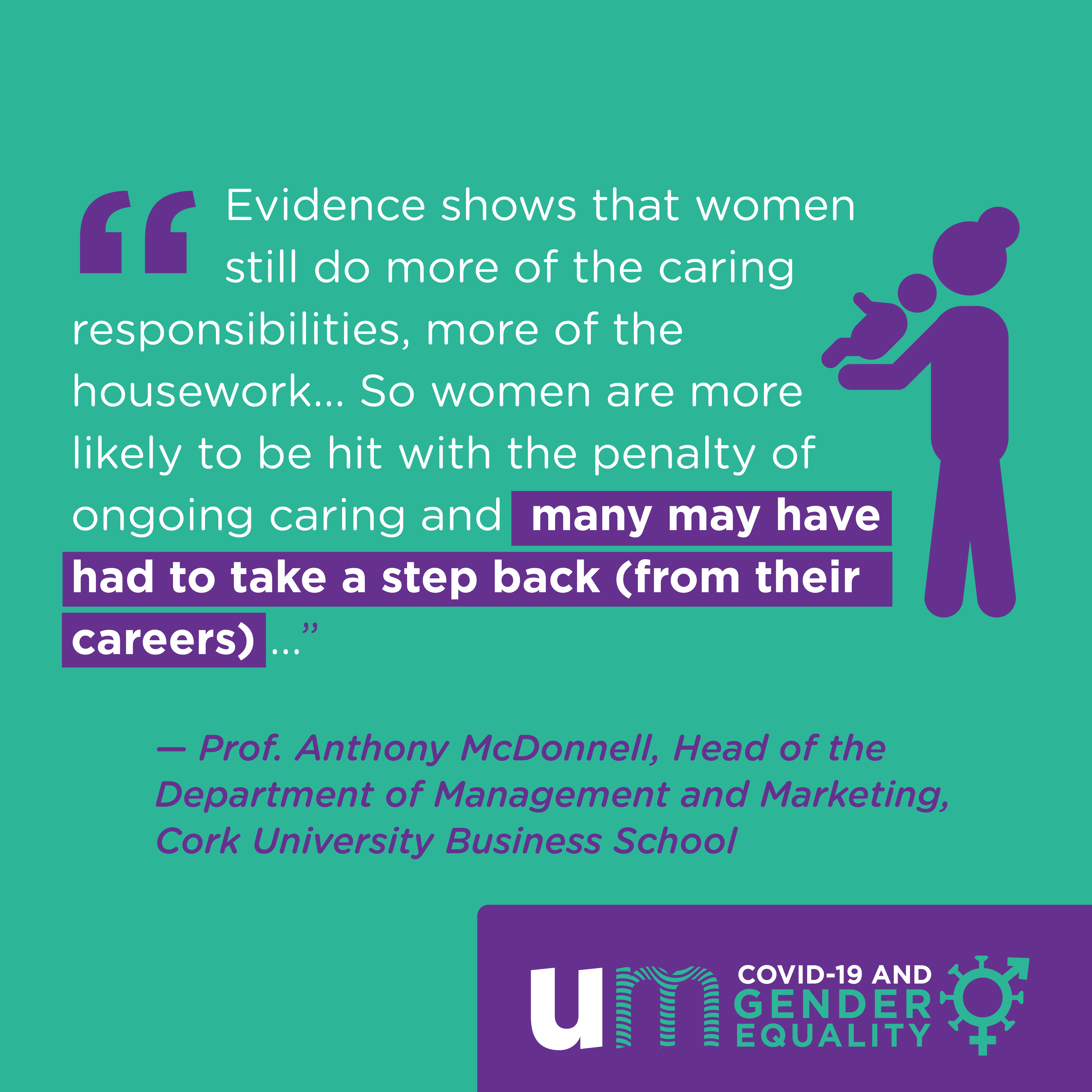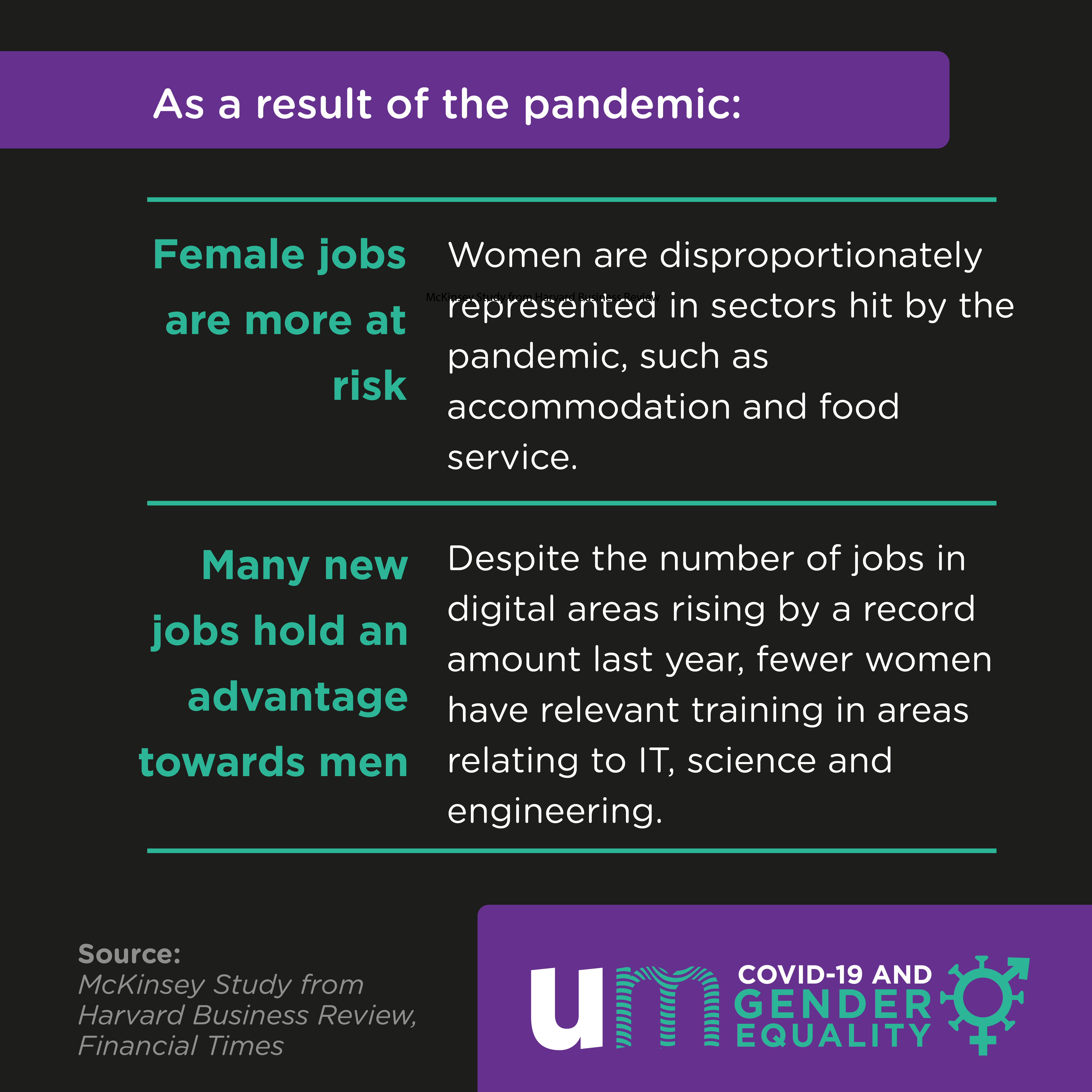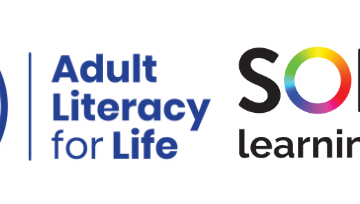Whilst we’re all acutely aware of the impact of the pandemic on our social lives, the economy and the health of the nation, there are many other affected areas which have not garnered quite so much attention. One area largely overlooked has been gender equality.
Typically, women bear the burden of unpaid health and child care, and the pandemic has seemingly heightened these pressures. Of 1,300 readers who took part in a recent Times UK survey (Equal Home Project), women were six times more likely to claim responsibility for the lion’s share of the household tasks (61% of women, versus 10% of men). Just 6% of men say that they take the main responsibility for childcare – although half the men surveyed said they had spent more time on childcare since the start of lockdown.
These are findings that stack up in Ireland too, Professor Anthony McDonnell, Head of the Department of Management and Marketing at Cork University Business School, University College Cork, believes the virus has presented both sizable set-backs and opportunities for gender equality in the workplace.

He said: “Evidence shows that women still do more of the caring responsibilities, more of the housework… So women are more likely to be hit with the penalty of ongoing caring and many may have had to take a step back (from their careers), particularly if employers are not supportive and flexible.”
The findings in the Times UK study suggest that women, in particular, have struggled with the lack of separation between work and their home life, and some found that their careers were being affected, despite their keenness for flexible working to continue post pandemic.

The National Women’s Council of Ireland (NWCI) conducted a survey of nearly 15,000 women in May 2020 revealing that 85% of women believed their caring responsibilities had increased since the onset of the pandemic, suggesting they were further shouldering the burden of unpaid work.
The nature of work remains significantly gender specific. Globally female jobs are more at risk than male ones simply because women are disproportionately represented in sectors negatively affected by the COVID-19 crisis, such as accommodation and food service.
The importance of nurturing female talent is paramount to women progressing to senior positions in the workforce and closing the gender pay gap which is currently at 14.4% in Ireland. This means on average women earn approximately 86 cents for every euro a man earns.

Things are further compounded by the fact that businesses have rushed to update their digital solution. The number of jobs in these areas rose by a record amount in the 12 months to June 2020, greatly outperforming the overall job market. However, many of these jobs hold an advantage towards men, with fewer women having acquired relevant training and education in areas relating to IT, science and engineering.
But there is hope, research shows the gender pay gap is currently at an all time low, society as a whole has become a lot more accepting, and future generations are fairly optimistic – the women of tomorrow are the “more generation.” They are more hopeful about their personal prospects at work, more hopeful about achieving further equality at home, and more positive about how their communities and societies perceive women and their impact.
Bringing your message to new urban audiences.
urbanmedia is now on Instagram, follow us @urbanmediairl.



